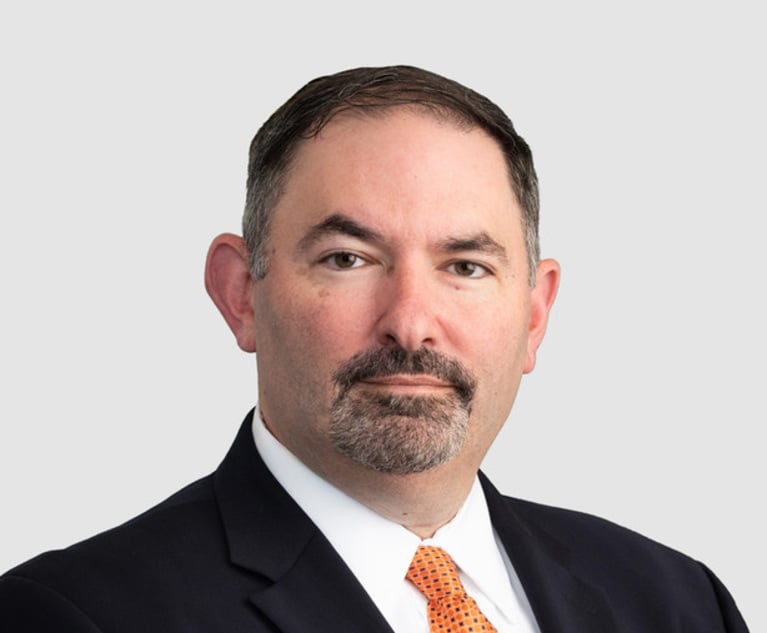How I Made Partner: DLA Piper's Amanda Fitzsimmons
"Don't let your career happen to you. You should develop your career with intention."
November 14, 2019 at 01:59 PM
5 minute read
Amanda Fitzsimmons, 37, DLA Piper
Office: San Diego.
Practice area: Data Privacy, Cybersecurity, and Antitrust.
Law school and year of graduation: University of San Diego School of Law, 2008.
How long have you been at the firm? About 10 years.
How long were you an associate at the firm? About 9 years.
Were you an associate at another firm before joining your present firm? After law school, I served as a judicial law clerk for U.S. District Judge Michael M. Anello of the Southern District of California for two years. I then joined DLA Piper.
What year did you make partner at your current firm? 2019
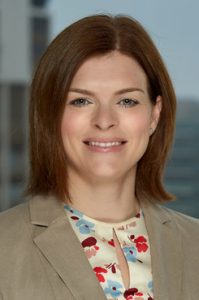 Amanda Fitzsimmons.
Amanda Fitzsimmons.What's the biggest surprise you experienced in becoming partner? Since being promoted to partner, I've learned a lot about the business side of the law. The partnership is very focused on how the legal market is evolving and is constantly looking for unique ways to add value to clients, and I've been able to see that from a new perspective.
What do you think was the deciding point for the firm in making your partner? An important part of becoming a partner at DLA Piper is anticipating client needs. I worked very hard to develop expertise in data privacy and cybersecurity because I knew it was both an area where my clients would seek advice and one that would create additional opportunities for myself and the firm.
Describe how you feel now about your career now that you've made partner. To have the firm recognize my efforts by promoting me to partner has only further solidified my conviction in my practice and my firm. As partner, I'm seeking new ways to develop my network and continue thought leadership in my practice areas.
What's the key to successful business development in your opinion? In addition to providing great work for your clients and having subject matter expertise, it's important to remain in constant contact with your network and consistently work at growing it. As the practice of law becomes more complex and globalized, existing and prospective clients are looking for lawyers who understand their business and unique needs. You have to demonstrate that understanding and then put it into play.
What's been the biggest change, day-to-day, in your routine since becoming partner? I devote additional time to thought leadership and business development, as well as contributing to the strategic planning for the San Diego litigation group and the data privacy and cybersecurity group. But I really haven't seen much of a change in my day-to-day routine from associate to partner. You hear it time and again, but in order to make partner, you have to act like a partner.
Who had the greatest influence in your career that helped propel you to partner? I am fortunate to have had three great influences in my legal career. The first is Jeff Shohet, a retired DLA Piper partner. Jeff served as my mentor for the first several years of my time at the firm. To put it simply, Jeff taught me how to be a good lawyer. He not only gave me the opportunity to take on work "above my pay grade," but he also taught me how to think outside the box in order to find creative solutions to difficult problems. Most importantly, he taught me the value of spending a few moments each day thinking about what you're not thinking about, which has allowed me to add value for my clients in ways they weren't expecting.
More recently, Angela Agrusa and Lisa Tenorio-Kutzkey, two litigation partners at DLA Piper, have developed into amazing mentors to me. Both are impeccable lawyers who have taught me how to think of client issues more broadly. In addition to teaching me new skills that have made me a better lawyer, they've helped me focus on building my brand by offering advice and suggestions that are unique to my practice and goals. Finally, both Angela and LT-K are amazing moms to two boys. As a mother of two boys myself, it's inspirational and motivating to see women be successful partners and mothers.
What's the best piece of advice you could give an associate who wants to make partner? Don't let your career happen to you. You should develop your career with intention. From day one, you should be considering the skills you need to be an excellent lawyer and seek out opportunities to develop those skills. As you become more senior, you should think about what you want your case for partnership to look like and start developing that case. This strategy includes seeking out experience in the practice area(s) that interest you, gaining a prominent role in a major firm client relationship, writing articles, and speaking on panels.
This content has been archived. It is available through our partners, LexisNexis® and Bloomberg Law.
To view this content, please continue to their sites.
Not a Lexis Subscriber?
Subscribe Now
Not a Bloomberg Law Subscriber?
Subscribe Now
NOT FOR REPRINT
© 2025 ALM Global, LLC, All Rights Reserved. Request academic re-use from www.copyright.com. All other uses, submit a request to [email protected]. For more information visit Asset & Logo Licensing.
You Might Like
View All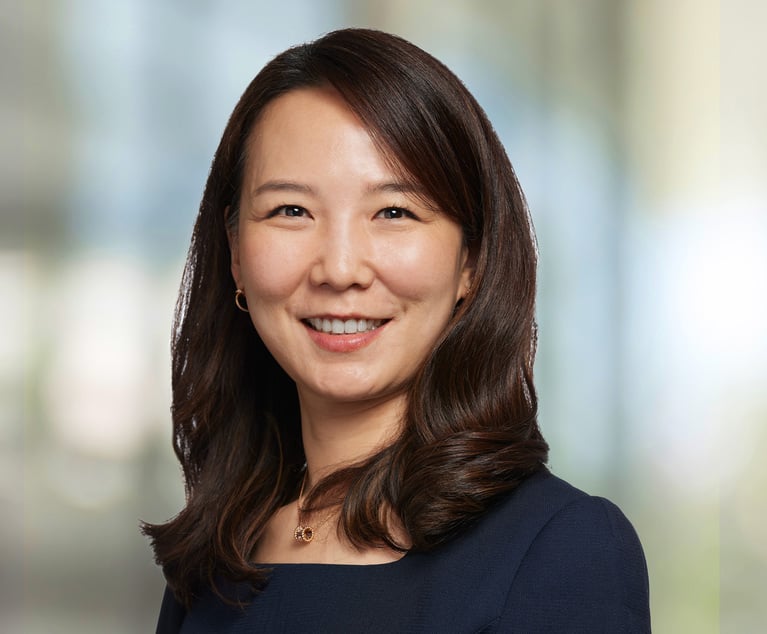
How I Made Partner: 'Be Open With Partners About Your Strengths,' Says Ha Jin Lee of Sullivan & Cromwell
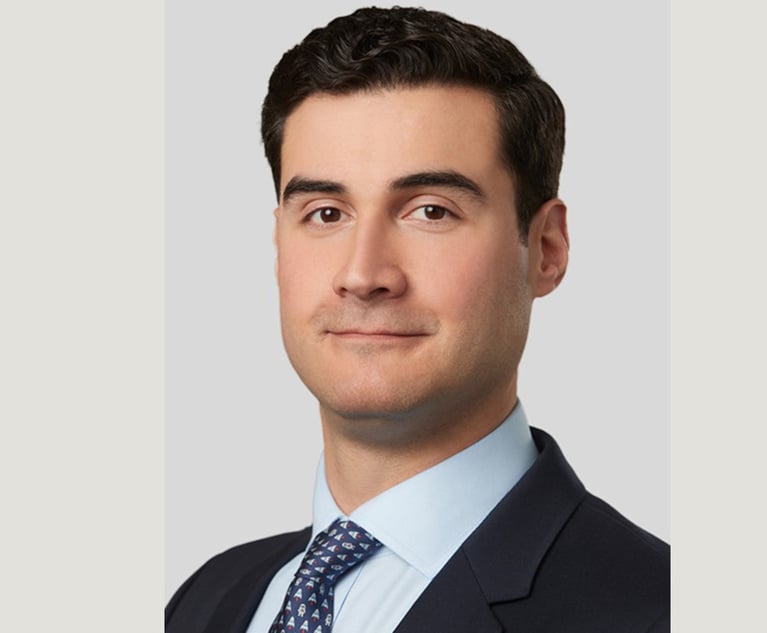
How I Made Partner: 'Avoid Getting Stuck in a Moment,' Says Federico Cuadra Del Carmen of Baker McKenzie
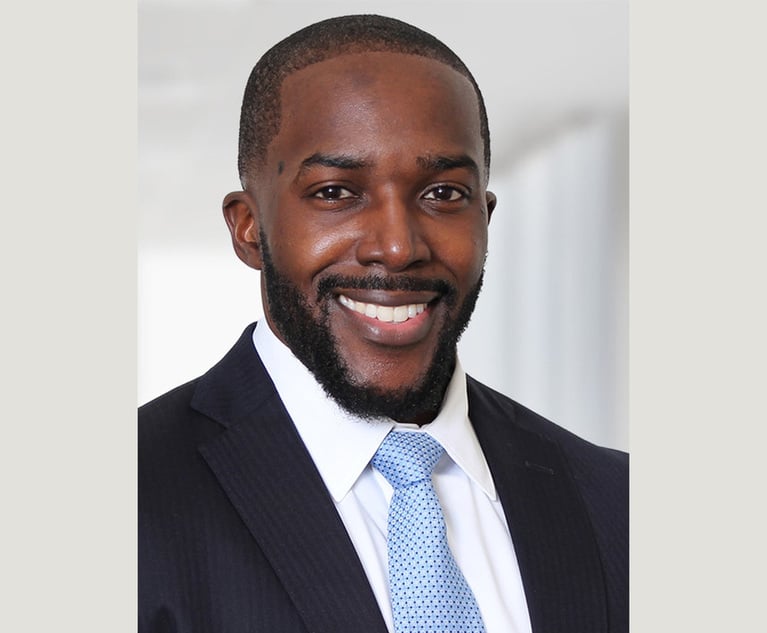
How I Made Partner: 'Find Your Niche and Become the Go-To Person,' Says Shawn Hendricks of Stradley Ronon Stevens & Young
Law Firms Mentioned
Trending Stories
- 1NY AG James Targets Crypto Fraud Which Allegedly Ensnared Victims With Fake Jobs
- 2The 'Motherhood Advantage' in Law: Time to Flip the Script
- 3Fenwick & West Shutters Decade-Old Shanghai Office
- 4Thompson Coe, 2 Lawyers, Hit by $1M+ Legal Mal Suit
- 5Regulatory Intelligence Platform Abstract Announces $4.8 Million in Seed Funding
Who Got The Work
Michael G. Bongiorno, Andrew Scott Dulberg and Elizabeth E. Driscoll from Wilmer Cutler Pickering Hale and Dorr have stepped in to represent Symbotic Inc., an A.I.-enabled technology platform that focuses on increasing supply chain efficiency, and other defendants in a pending shareholder derivative lawsuit. The case, filed Oct. 2 in Massachusetts District Court by the Brown Law Firm on behalf of Stephen Austen, accuses certain officers and directors of misleading investors in regard to Symbotic's potential for margin growth by failing to disclose that the company was not equipped to timely deploy its systems or manage expenses through project delays. The case, assigned to U.S. District Judge Nathaniel M. Gorton, is 1:24-cv-12522, Austen v. Cohen et al.
Who Got The Work
Edmund Polubinski and Marie Killmond of Davis Polk & Wardwell have entered appearances for data platform software development company MongoDB and other defendants in a pending shareholder derivative lawsuit. The action, filed Oct. 7 in New York Southern District Court by the Brown Law Firm, accuses the company's directors and/or officers of falsely expressing confidence in the company’s restructuring of its sales incentive plan and downplaying the severity of decreases in its upfront commitments. The case is 1:24-cv-07594, Roy v. Ittycheria et al.
Who Got The Work
Amy O. Bruchs and Kurt F. Ellison of Michael Best & Friedrich have entered appearances for Epic Systems Corp. in a pending employment discrimination lawsuit. The suit was filed Sept. 7 in Wisconsin Western District Court by Levine Eisberner LLC and Siri & Glimstad on behalf of a project manager who claims that he was wrongfully terminated after applying for a religious exemption to the defendant's COVID-19 vaccine mandate. The case, assigned to U.S. Magistrate Judge Anita Marie Boor, is 3:24-cv-00630, Secker, Nathan v. Epic Systems Corporation.
Who Got The Work
David X. Sullivan, Thomas J. Finn and Gregory A. Hall from McCarter & English have entered appearances for Sunrun Installation Services in a pending civil rights lawsuit. The complaint was filed Sept. 4 in Connecticut District Court by attorney Robert M. Berke on behalf of former employee George Edward Steins, who was arrested and charged with employing an unregistered home improvement salesperson. The complaint alleges that had Sunrun informed the Connecticut Department of Consumer Protection that the plaintiff's employment had ended in 2017 and that he no longer held Sunrun's home improvement contractor license, he would not have been hit with charges, which were dismissed in May 2024. The case, assigned to U.S. District Judge Jeffrey A. Meyer, is 3:24-cv-01423, Steins v. Sunrun, Inc. et al.
Who Got The Work
Greenberg Traurig shareholder Joshua L. Raskin has entered an appearance for boohoo.com UK Ltd. in a pending patent infringement lawsuit. The suit, filed Sept. 3 in Texas Eastern District Court by Rozier Hardt McDonough on behalf of Alto Dynamics, asserts five patents related to an online shopping platform. The case, assigned to U.S. District Judge Rodney Gilstrap, is 2:24-cv-00719, Alto Dynamics, LLC v. boohoo.com UK Limited.
Featured Firms
Law Offices of Gary Martin Hays & Associates, P.C.
(470) 294-1674
Law Offices of Mark E. Salomone
(857) 444-6468
Smith & Hassler
(713) 739-1250




